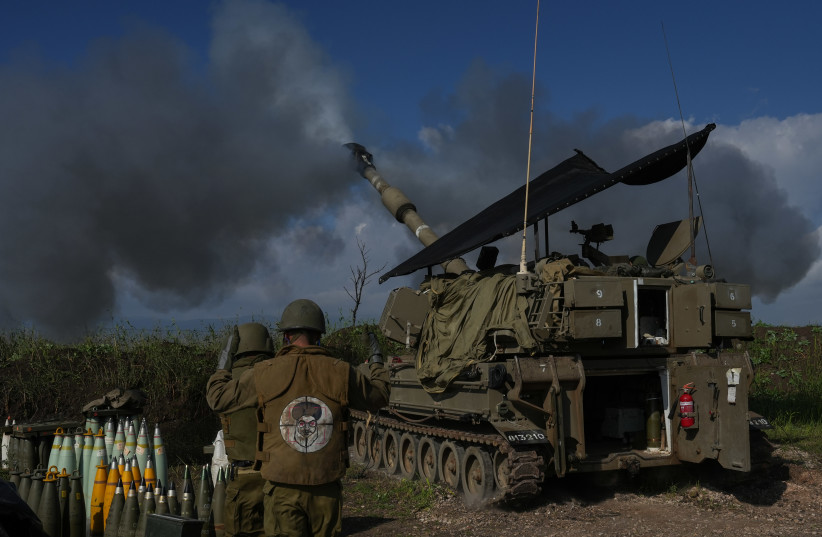Hezbollah and foreign media reports claimed on Monday that the IDF killed Wissam al-Tawil, known as Jawad, a key Radwan operations commander in southern Lebanon, either in an air strike or by a roadside bomb in Khirbat Salem, Lebanon.
It was unclear if Jawad, a significant figure within Hezbollah, had been killed as part of ongoing exchanges of fire between the IDF and Hezbollah or whether he was specifically targeted.
"There have been cases where Israel has relayed messages through third parties that it was not responsible for killing someone, such as the recent double bombing in Iran, and there were no signs that Israel had tried to go out of its way to deny a connection to the killing," the IDF commented on Monday evening.
Hezbollah responded with rocket fire multiple times on Monday, including wounding a soldier in the Mount Dov area.
Likewise, the IDF struck both Hezbollah sources of rocket fire and terror infrastructure positions in general in southern Lebanon.
If he was specifically targeted, the attack would seem to be part of a series of recent escalations.
From October 8 until early December, Hezbollah attacked Israel with rockets and anti-tank missiles, but only close to the northern border, to show solidarity with Hamas, and the IDF tended to respond proportionately.

Just six days after death of senior Hamas commander in Beirut
In early December, the IDF ramped up its “responses” to start destroying much of Hezbollah’s forces or assets within firing range of the northern border.
Recently, Israel also allegedly killed Hamas Deputy Chief Saleh al-Arouri while he was a guest of Hezbollah in Beirut.
In response, Hezbollah fired dozens of rockets on Saturday, and significantly damaged an important piece of the IDF’s air defense capabilities in the North.
If the IDF intentionally killed Jawad, it could be the latest response to that Hezbollah attack.
Early reactions suggested Hezbollah could re-escalate even further.
